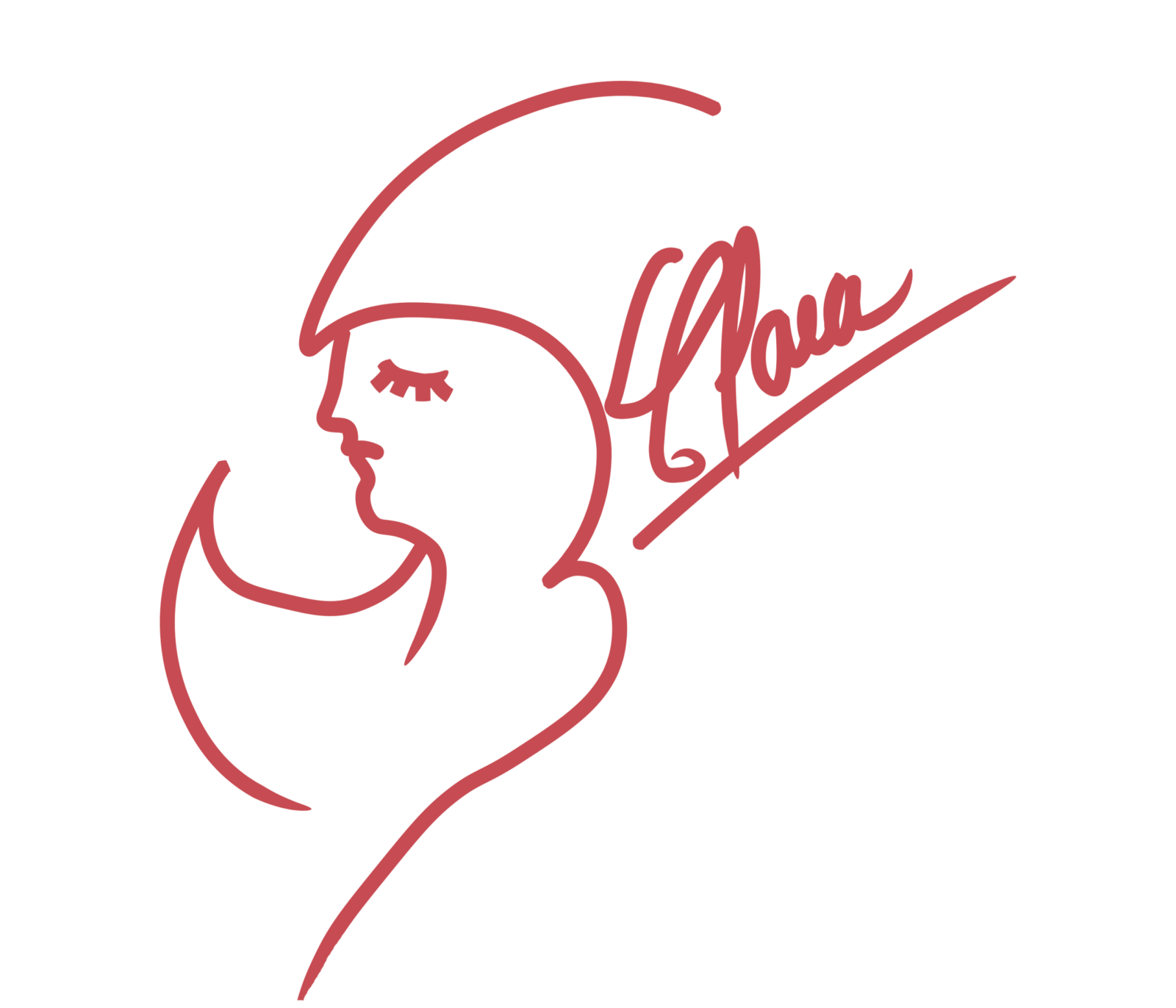Sumi Hinoki Scented Candle,
Buly 1803
Musician
Launching her solo debut Sainte-Victoire in April 2018, Clara Luciani is already one of the frontrunners of French pop’s nouvelle vague taking the country by storm; recently gaining further notoriety by winning a Victoires de la Musique award for Group or Artist Stage Révélation of the Year. Intimate and autobiographical, Clara’s Saint-Victoire ranges from feminism to heartbreak, expressing a range of sound and emotion in a deep, melodious voice reminiscent 60s chanteuses Nico, Françoise Hardy, and Dalida. Collaborating with previous tastemaker Alma Jodorowsky, Semaine produced Clara’s new official video for the eponymous track ‘Sainte-Victoire.’ Noting the album’s personal nature, it’s no surprise the young Marseillaise named her debut after the mountains that dominate the Provençal landscape.
Following a chance meeting with La Femme’s Marlon Magnée at a festival (apparently he can dance a mean twist), Clara decamped to the French capital to try her hand at breaking into the music industry. She was 19. After growing up in a northern suburb of Marseille, the musician has referred to moving to Paris as rebirth. “[Paris] gave me the possibility to meet other musicians and play concerts. Due to that, it was easier to make music than in the South of France,” she said. Cutting her teeth on collaborations with La Femme, followed by Hologram with Maxime Sokolinski, Nekfeu, and touring as the opening act for Benjamin Biolay, Clara brings strong foundations to her solo career.
Inspired by a breakup, her initial EP Monstre d’Amour garnered apt comparisons to Barbara, one of France’s most beloved troubadours of melancholy. Donning long black gowns, velvet capes, and a moody countenance, Clara stalked through snowy landscapes, the wide-brimmed straw hat dangling from her neck reminiscent of an aureole. Looking at Monstre d’Amour and Sainte Victoire, the tonal difference is clear. Shifting from patron saint of heartbreak to powerful modern woman, Clara uses breakout hits like the feminist anthem “Grenade” and her cover “La baie” to show the diversity of her sound and perspective. Lyrically, however, the roots of Clara’s sober reflections remain.
“Hey you—what are you looking at? / You’ve never seen a woman who fights? / Follow me in the washed-out city / and I will show you / how I bite / how I bark,” she sings at the opening of “Grenade,” her top track on Spotify with 2 million plays and counting. Yet for Clara, strength and vulnerability exist side by side, and her choice to blend dancefloor anthems with moody ballads reflects her perspective on the feminine experience. Stripped down to only vocals and guitar, “Drôle d’époque” examines the double standards modern women face, while “Les fleurs” muses on finding refuge from the negativity and pressure of contemporary life. In “Sainte Victoire,” Clara thematically unites her EP with her album. Clara speaks over the song’s driving beat and mingled synths, describing surrealistic rebirth from past sorrow. “The desire to live is irresistible / To recover from this sorrow / To recover from this pain is to be able to face everything / You made me understand that I was invincible / Victorious whatever the outcome / I am armed to the teeth/ Under my bosom /A grenade,” she says.
Her penchant for covers comes from an appreciation of 1960s yé-yé. Riffing on this tradition of translating hit American and British pop songs for a French audience, she tackled Lana Del Ray’s “Blue Jeans” on YouTube and included Metronomy’s 2011 single as “La baie” on Sainte-Victoire. Citing musicians like Marie Laforet, who transformed The Rolling Stones’ “Paint it Black” into “Marie Douceur/Marie Colère,” as inspiration, she found greater creative freedom in the French language to add her own personal touch. “For me, there’s freedom in translation, especially,” she said. “It is to make it your own—to tell the same story but with your own words.”
While American pop relies more on crafting a catchy melody than smart lyrics, Clara’s songs are a perfect example of the French enthusiasm for language. After spending her teenage years blogging and writing poetry, she approaches songwriting as something distinctly personal. “For me, writing songs is like writing an intimate journal,” Clara said. “I never really include situations or people that are imaginary or poetic. I simply recount my life in the most direct and simple way as possible.” Despite a shift over the last 10 years towards French artists choosing to sing in English, Clara writes, sings, and performs in her native French. “The French language has influenced me for two reasons. One aspect is because I speak really bad English, and the other is that I talk about such intimate and personal things in my songs,” Clara said. “It would be absurd to sing in another language. It would be like putting a filter between me and my writing. I don’t want that.”
By Lauren Sarazen for Semaine.
Photography by Noel Quintela.
Explore the eccentric atmospheres of Clara’s favourite Parisian haunts. Step through the looking glass for a slice of La Loire dans le Théière’s meringue-topped tarte citron or travel back in time to the post-war tiki craze with a flaming cocktail at The Dirty Dick. Go on, we dare you.
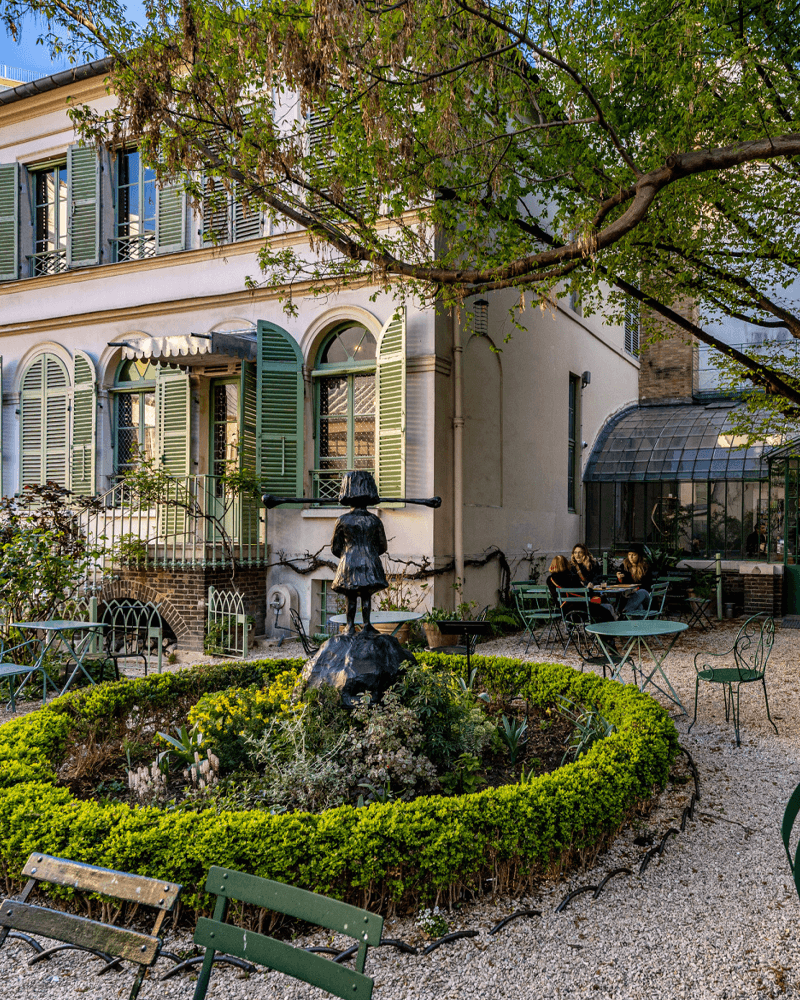
Standing at the food of Montmatre hill in an 1830 hôtel particulier, the Musée de la Vie Romantique is a museum dedicated to Romanticism, with a secret garden beautiful enough to make you fall in love.
16 Rue Chaptal 750009 Paris,
France
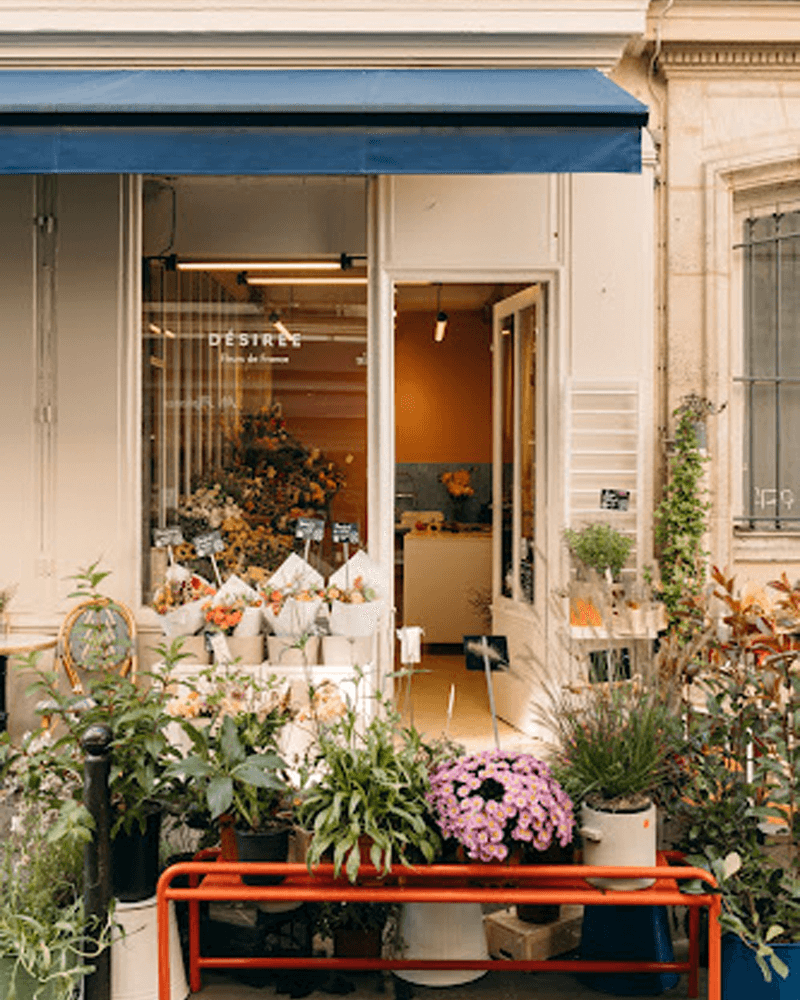
The founders met in 2010, with a love for both floristry and cheese. The result? A wonderful local and seasonal florist café, with the aim of working exclusively with French flowers.
5 Rue de la Folie Méricourt 75011 Paris,
France
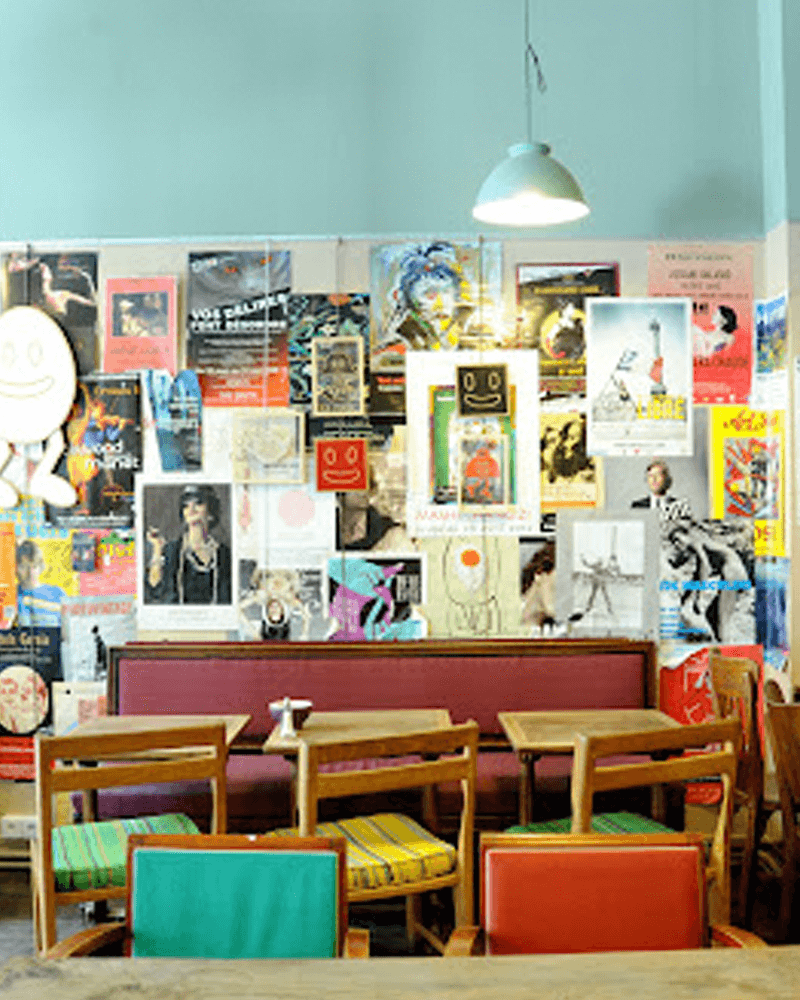
One of the sweetest tea rooms you'll stumble upon in Paris, with homemade cakes surrounded by theatre posters, mismatched furniture and murals that scream an alternative Paris.
3 Rue des Rosiers 75004 Paris,
France
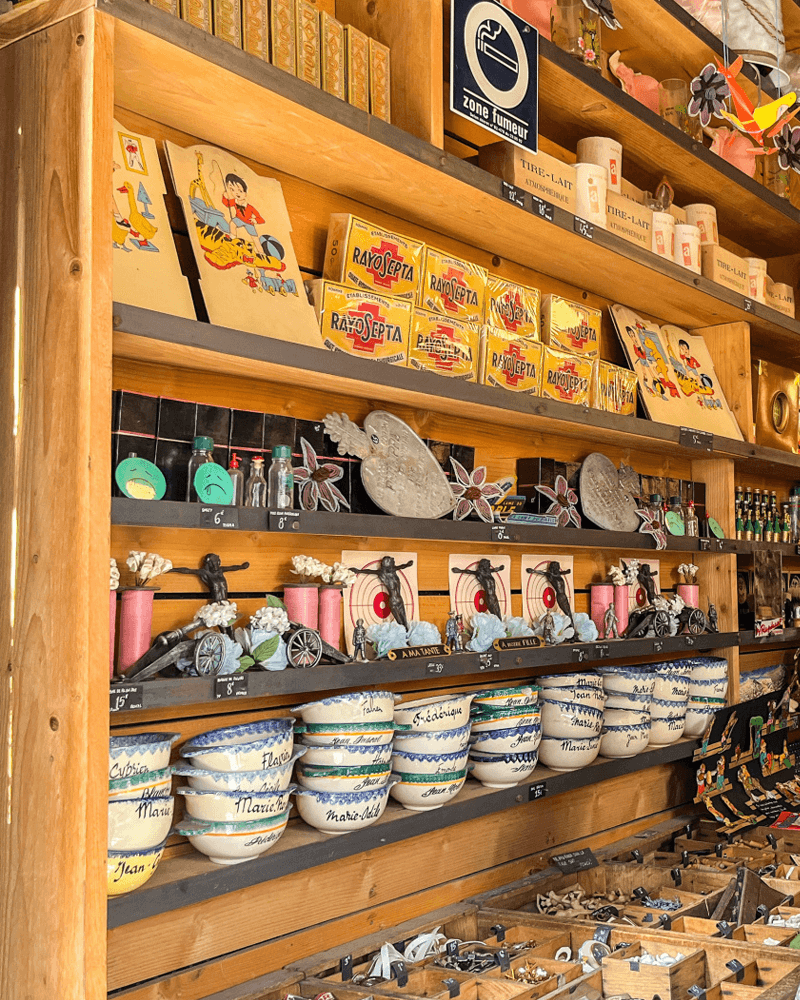
Les Puces de Saint-Ouen is a sprawling network of warehouses, stands and alleyways that put any other carboot sale to shame. With over 5 million visitors a year, it is worth spending some time browsing this area of Paris.
93400 Saint-Ouen,
France

A vintage shop in Paris that is not worth missing, with beautifully curated pieces and service to boot.
5 Rue Henry Monnier 75009 Paris,
France
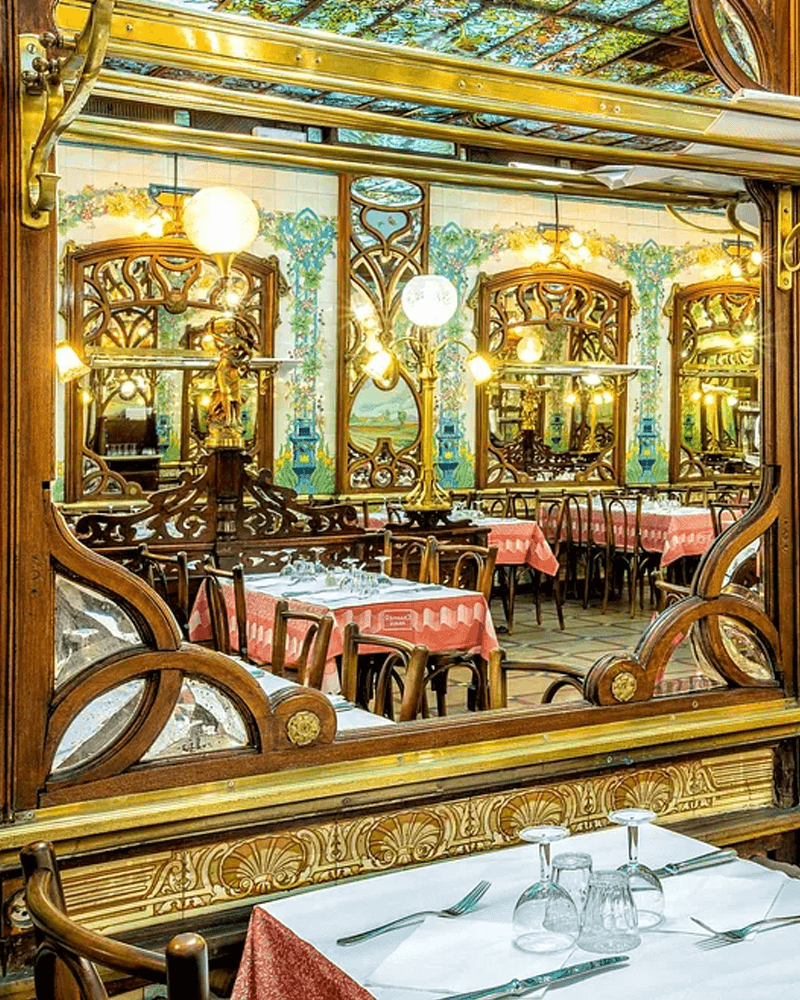
One of the two family run restaurants in Paris, the restaurant has entertained for centuries with both a Parisien and international clientele.
7 Rue du Faubourg Montmartre 75009 Paris,
France
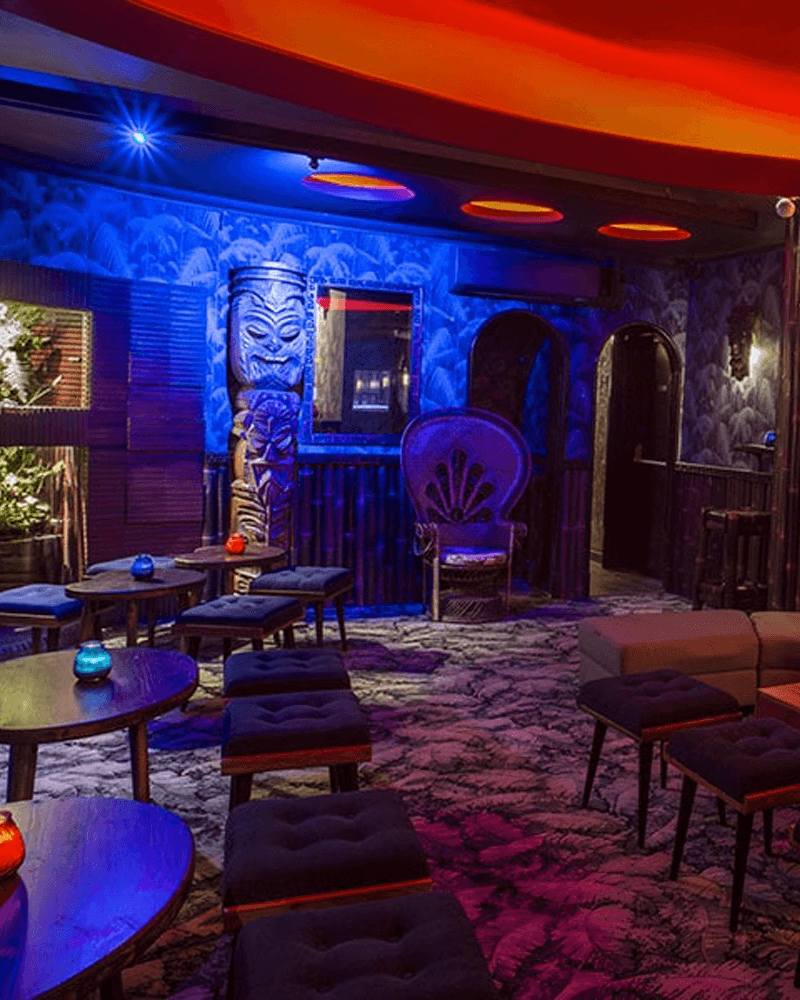
Dirty Dick is a busy, low-lit bar with a Polynesian vibe. The inventive tropical cocktails make the visit worthwhile in itself.
10 Rue Frochot 75009 Paris,
France
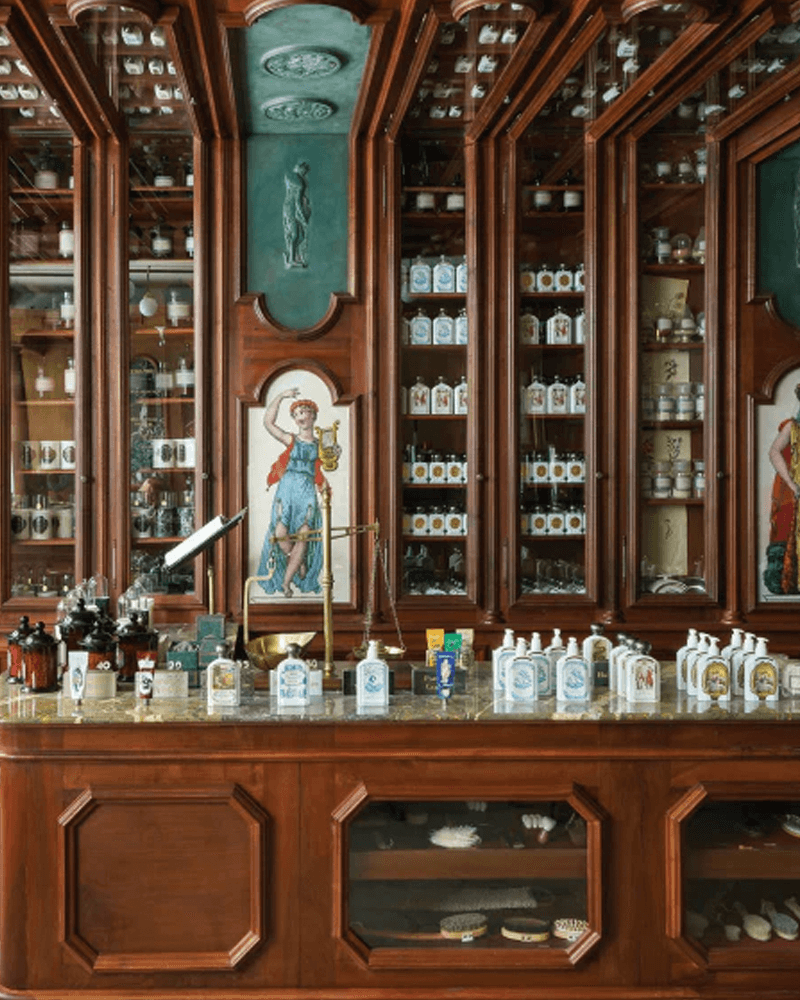
A French brand that has become a worldwide success and key in the beauty industry, offering perfumes, atmospheric odours and other beauty treatments.
6 Rue Bonaparte 75006 Paris,
France
The best books to read whilst roadtripping, in between concerts and with a little bit of downtime. A few French classics too.
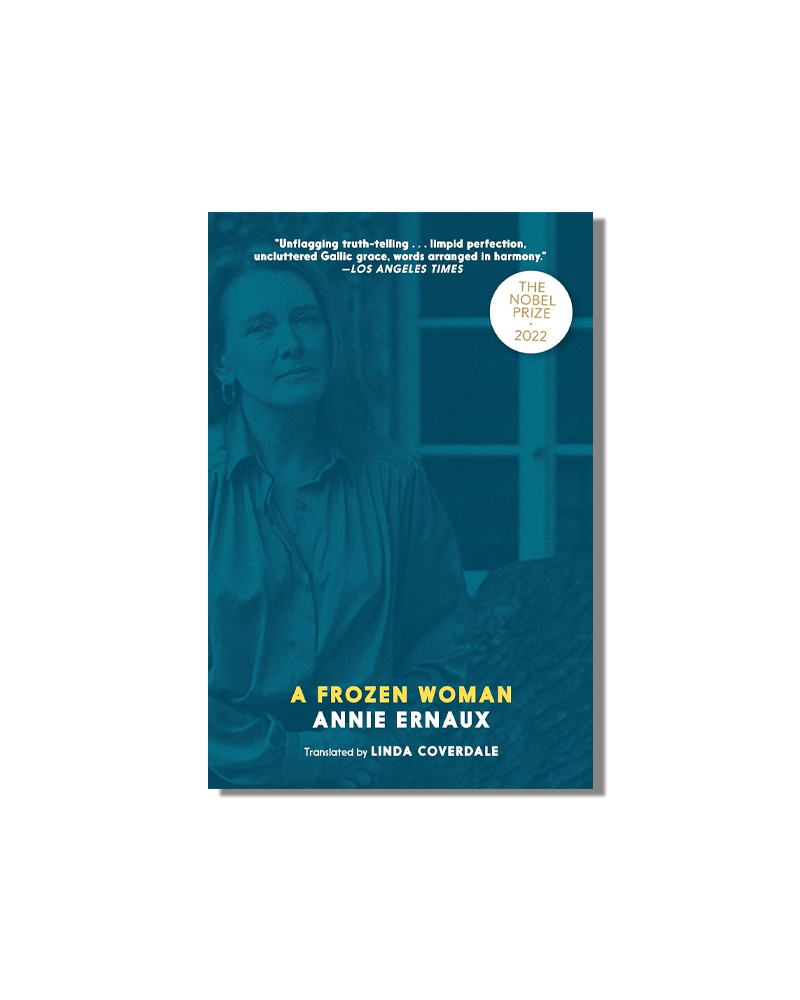
£7.70
A Frozen Woman charts Ernaux's teenage awakening, and then the parallel progression of her desire to be desirable and her ambition to fulfil herself in her chosen profession - and the conflict between the two that follows.
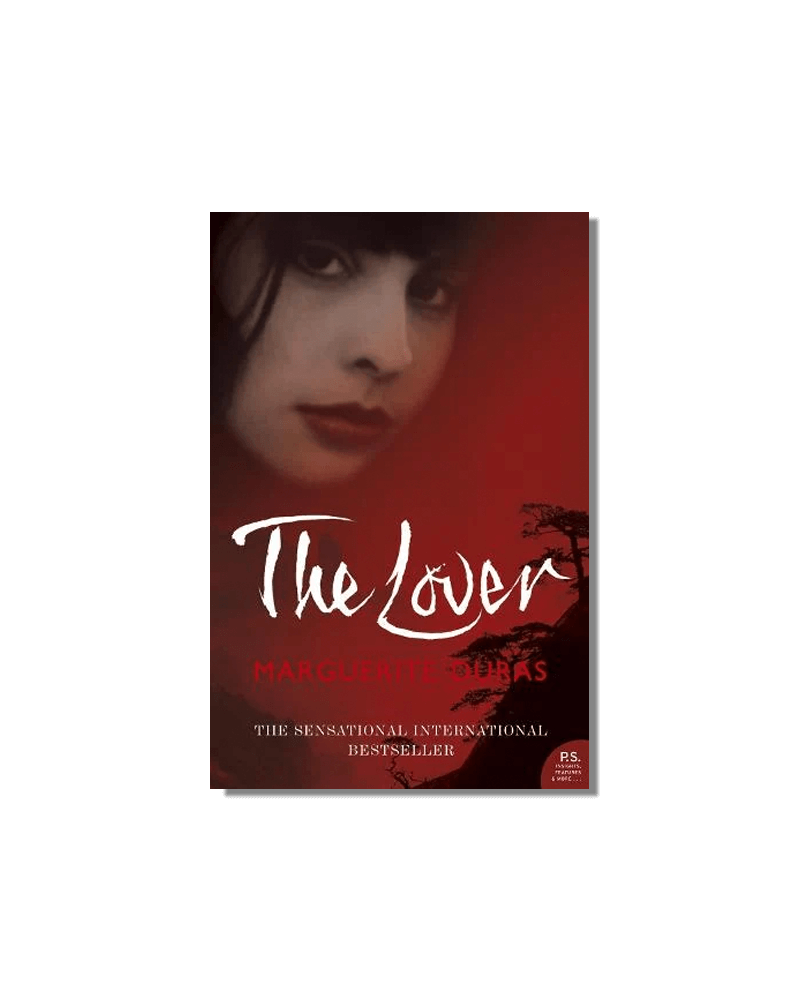
£9.99
One of the leading novelists in post-war France, The Lover is the best known of these novels published posthumously. Set in pre-war Indochina, it is a haunting tale of a tumultuous affair between an adolescent French girl and her wealthy Chinese lover, based on Duras' own life.
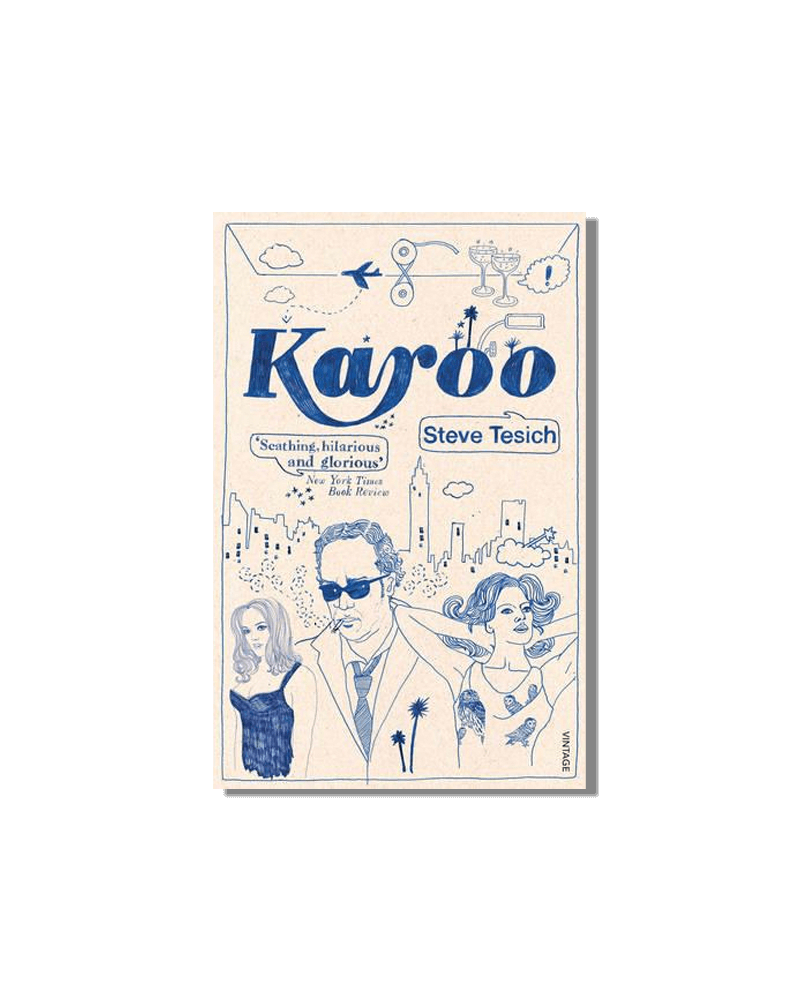
£9.99
Karoo is a professional fixer of other people's scripts and, by his own acknowledgement, he ruins them all. As the novel charts his life as it breakdowns, a mix of comedy and calamity ensues.
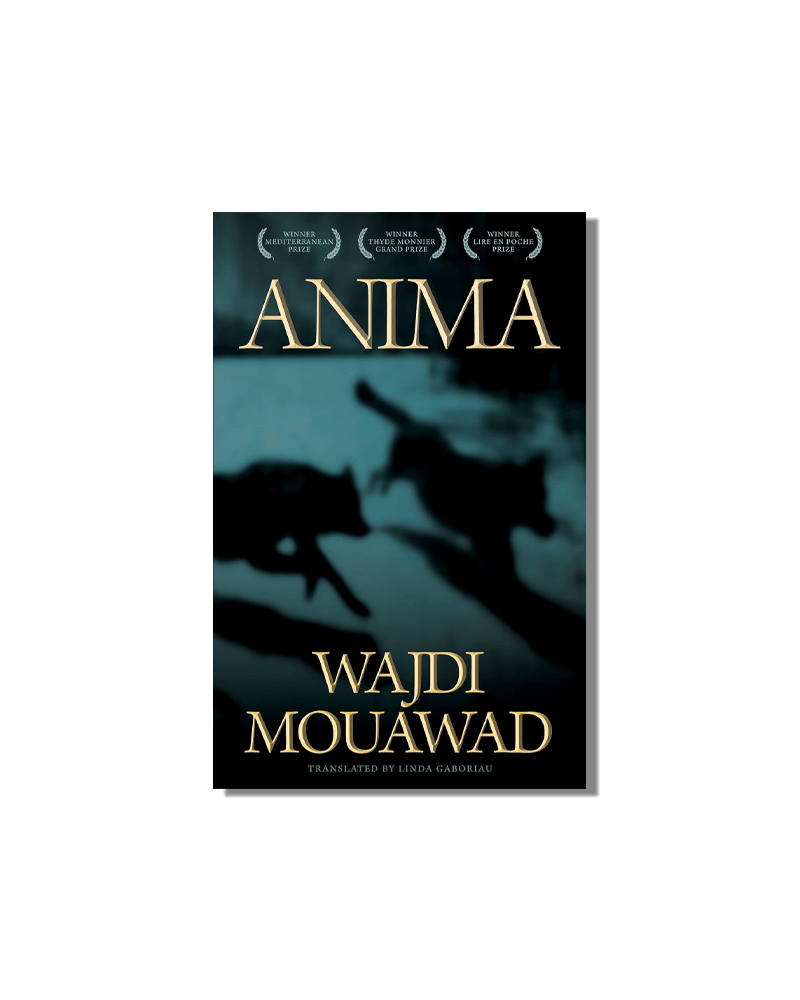
£12.99
Returning home one evening after work, a man discovers his wife brutally murdered, lying in a pool of blood. The story of how this happened is relayed through a variety of animals.
Although her passions lie in music, it would be wrong to suggest that Clara isn’t a connoisseur of film too.
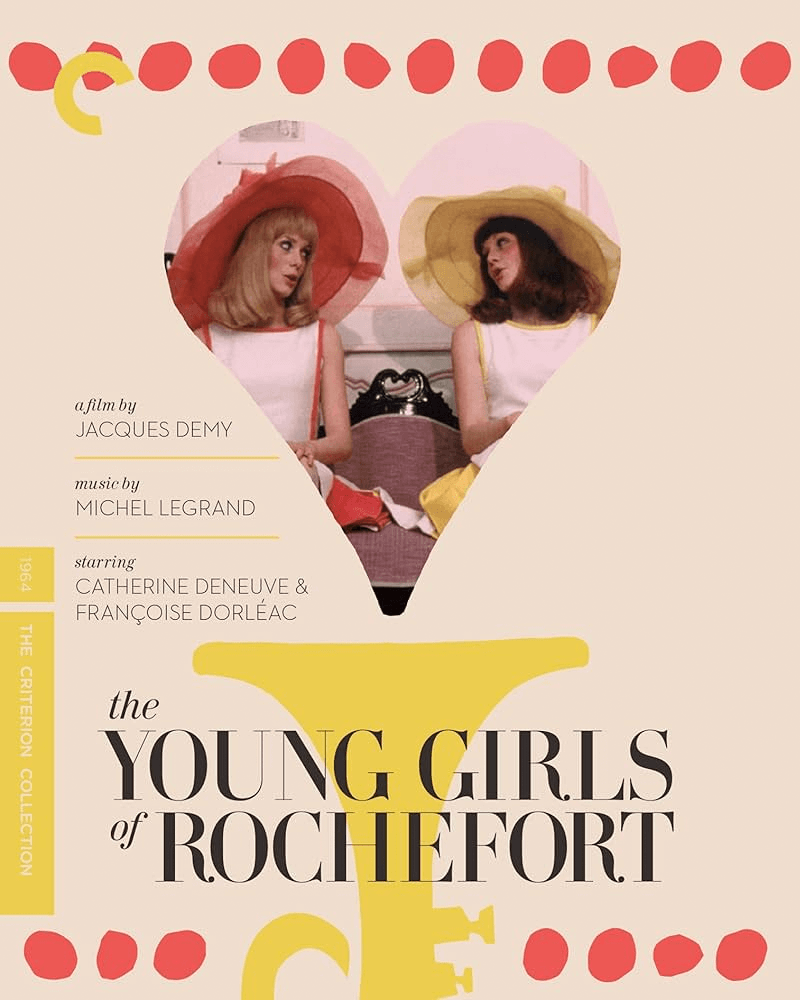
Leaving their small seaside town of Rochefort in search of romance, these two sisters follow very different paths...
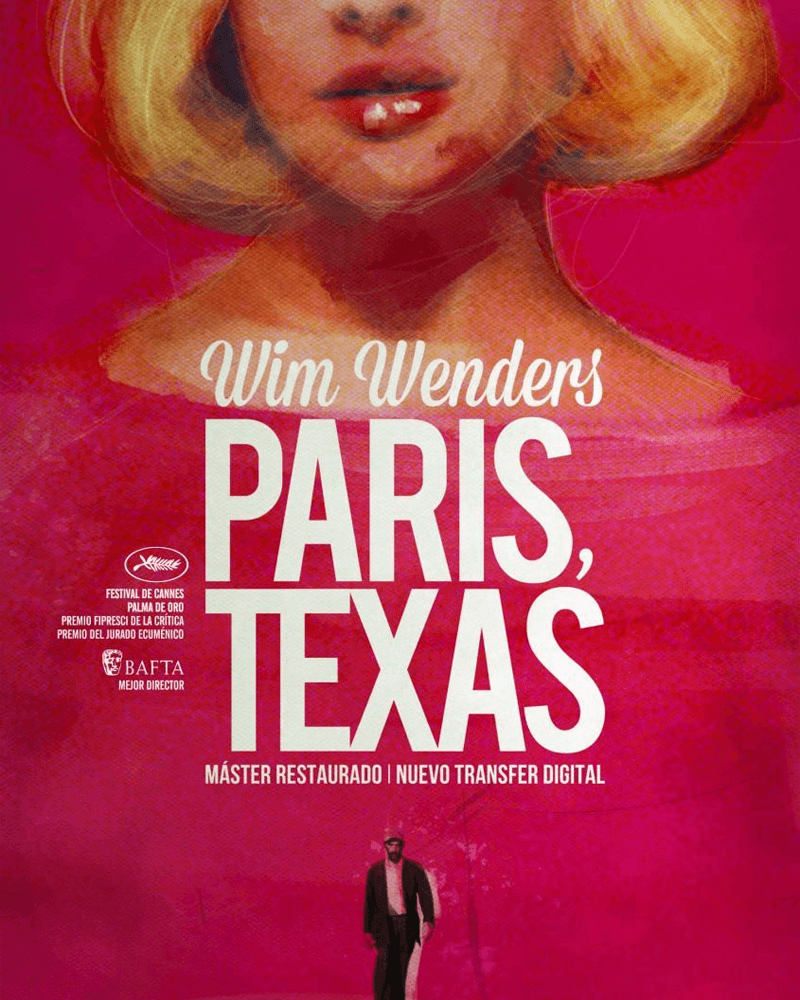
The protagonist, Travis, has been missing for four years, wondering out to the desert to connect with society, himself and his family

A sci-fi set in the 41st century, Barbarella sets out to destroy an evil scientist.
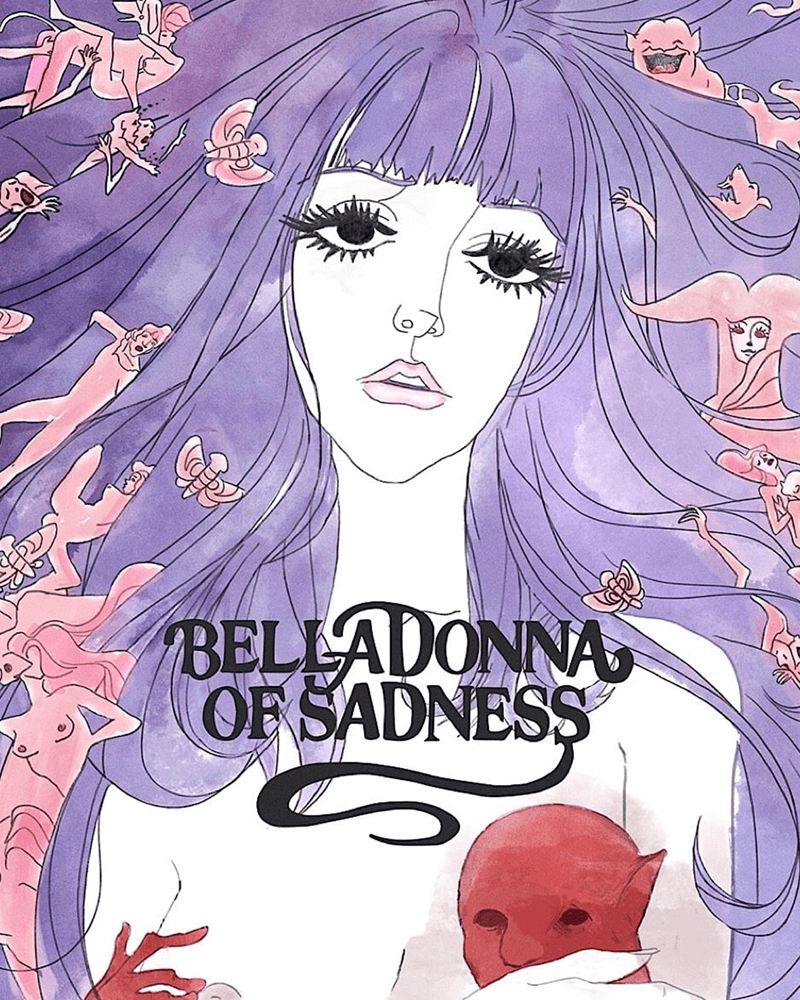
Another vintage animation that will get you thinking about the world beyond is Belladonna of Sadness. After being banished wrongfully from her village, Belladonna makes a pact with the Devil to take her revenge.
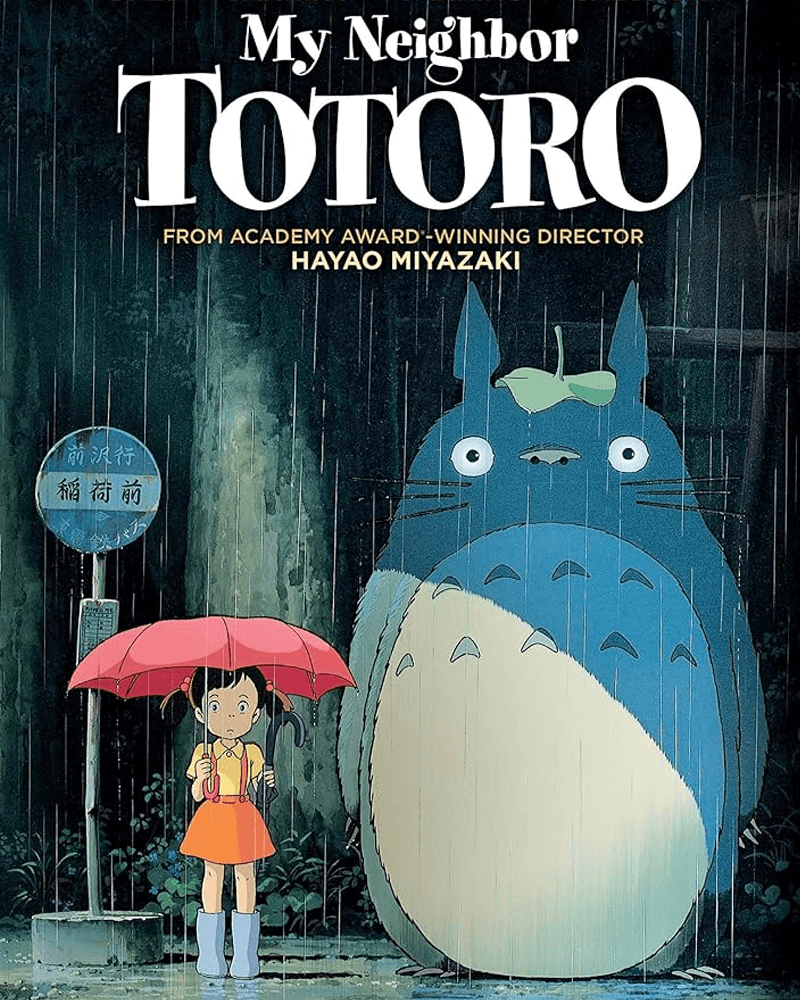
After two girls move to the countryside to be with their mother, the forest spirits become their closest companions.

Become a member today to enjoy all our Tastemakers address recommendations on our interactive travel guide world map!
SUBSCRIBE NOWWhat is the first album you really connected with?
Clara:
Berlin by Lou Reed, which my father gave me when I brought home a good report card.
Can you tell us about your favourite onstage moment?
Clara:
During a concert, I was playing the guitar alone during “Drole d’époque,” and I felt a connection with the public who have always been attentive and receptive. It was a precious moment.
Greatest tour woe?
Clara:
I don’t have any for the moment. All of it has really passed in the most idyllic way so far!
Greatest tour high?
Clara:
The concert in Martigues. It’s the city where I was born. The ambiance was very particular, and my grandfather had come to see me in concert for the first time.
Nico or Françoise Hardy?
Clara:
Françoise Hardy, who I met this year. She was an especially positive influence on my first album.
What’s the strangest job you’ve ever had?
Clara:
When I was working in a pizza restaurant!
What are you reading?
Clara:
In Praise of Shadows by Junichirô Tanizaki. I’m fascinated by Japan.
Do you believe in destiny?
Clara:
No, I think that everything comes with a lot of perseverance and nothing is written.
Paris or Marseille?
Clara:
Marseille. We never forget the place we were born.
